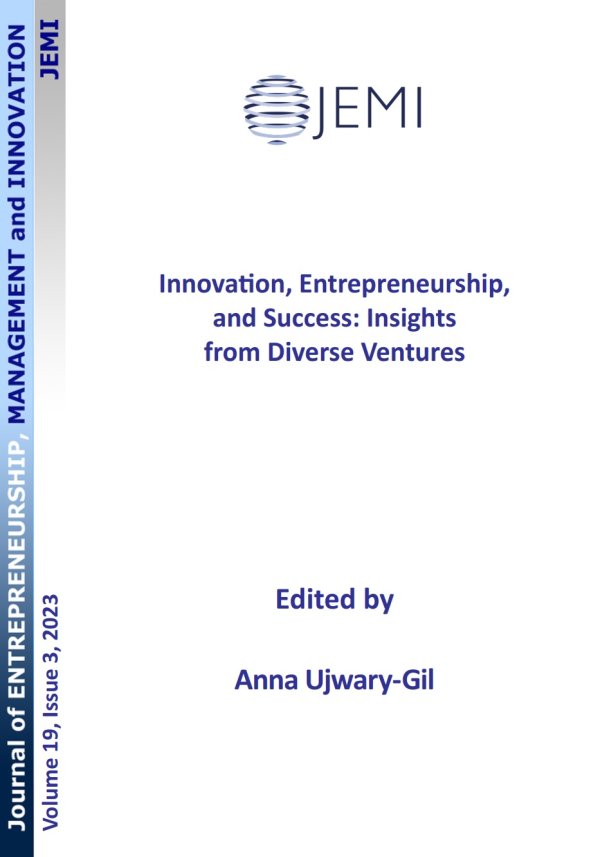Daria Ilczuk, Ph.D. candidate, Doctoral School of Humanities and Social Sciences, University of Gdansk, Wita Stwosza 63, 80-308 Gdansk, Poland, e-mail: This email address is being protected from spambots. You need JavaScript enabled to view it.  , corresponding author.
, corresponding author.
Łukasz Dopierała, Ph.D., Assistant Professor at the Department of International Business, Faculty of Economics, University of Gdansk, Armii Krajowej 119/121, 81-824 Sopot, Poland, e-mail: This email address is being protected from spambots. You need JavaScript enabled to view it. 
Joanna Bednarz, Associate Professor, Head of the Department of International Business, Faculty of Economics, University of Gdansk, Armii Krajowej 119/121, 81-824 Sopot, Poland, e-mail: This email address is being protected from spambots. You need JavaScript enabled to view it. 
Abstract
PURPOSE: Along with demographic changes, it is increasingly frequent that many mature people resign from their full-time jobs and decide to start their own businesses at a later age. Entrepreneurial activity among this group of so-called silver entrepreneurs can be caused by many motives, but these factors usually remain unknown to current employers or do not constitute a valid reason for understanding and keeping a mature person in the workplace. The purpose of this paper is to present new scientific results concerning entrepreneurial motivations, both internal and external, and the previous experiences of silver entrepreneurs from Eastern Europe based on an example from Poland. METHODOLOGY: We analyzed a unique sample of 1,003 owners of micro and small enterprises from Poland. The sample included only people over fifty. Our empirical study used a survey to explore the motivations and experiences of silver entrepreneurs that influenced their decision to start a business later in life. We linked attitude toward the behavior with motivation and utilized the “pull” and “push” factors. We utilized logistic regression to determine the factors related to starting a business above fifty. We also used the ordinary least square regression to determine the relationship between the explanatory variables and the age of starting a business by the respondents. FINDINGS: We found that the main “pull” factor positively influencing the start of business activity by silver entrepreneurs is the fulfillment of dreams as a broadly understood need for self-realization. However, the “push” factors (such as the occurrence of ageism in the workplace, as well as the loss of employment and lack of other opportunities on the labor market) significantly reduced the probability of starting a company at the age of over fifty. On the basis of the positive impact of a “pull” factor, it can be concluded that entrepreneurial activity at a later age is the result of opportunity-based entrepreneurship. Due to the negative impact of the job-loss factor, people made redundant started their business activity at an earlier age, before the age of fifty. Regarding external entrepreneurial motivations, the support received from family is the most important factor related to the individual’s environment affecting starting a business by silver entrepreneurs. However, the support from friends and the support from government bodies were not significant factors influencing starting a business at a later age.IMPLICATIONS: Findings from our study have implications for both employers and groups who support entrepreneurship. First, from the point of view of employers, the occurrence of ageism in the previous workplace could have resulted in resignation from full-time employment at an earlier age and a faster start of business activity. It is surprising that negative behavior towards older employees may also be associated with resignation from work by younger people. From the point of view of government bodies and other stakeholder groups related to the development of entrepreneurship, it is interesting that the support received from government bodies in conducting business activities was statistically insignificant for each group of respondents. This suggests the need to identify effective support and to design a comprehensive strategy for the development of silver entrepreneurship. ORIGINALITY AND VALUE: The vast majority of previous studies used secondary data or focused mainly on Western Europe, in particular the United Kingdom, Finland, and France. Our contribution is to provide empirical evidence about the silver entrepreneurs from Eastern Europe, especially Poland. Our research included individuals who actually run their own businesses, opposite to previous studies that take into account people who are just considering starting a business. This is particularly important in relation to research on the entrepreneurial intentions of mature people to undertake entrepreneurial activities at a later age, and the real motivations of silver entrepreneurs.
Keywords: silver entrepreneurs, ageing, entrepreneurship, entrepreneurial motivations, push/pull factors






